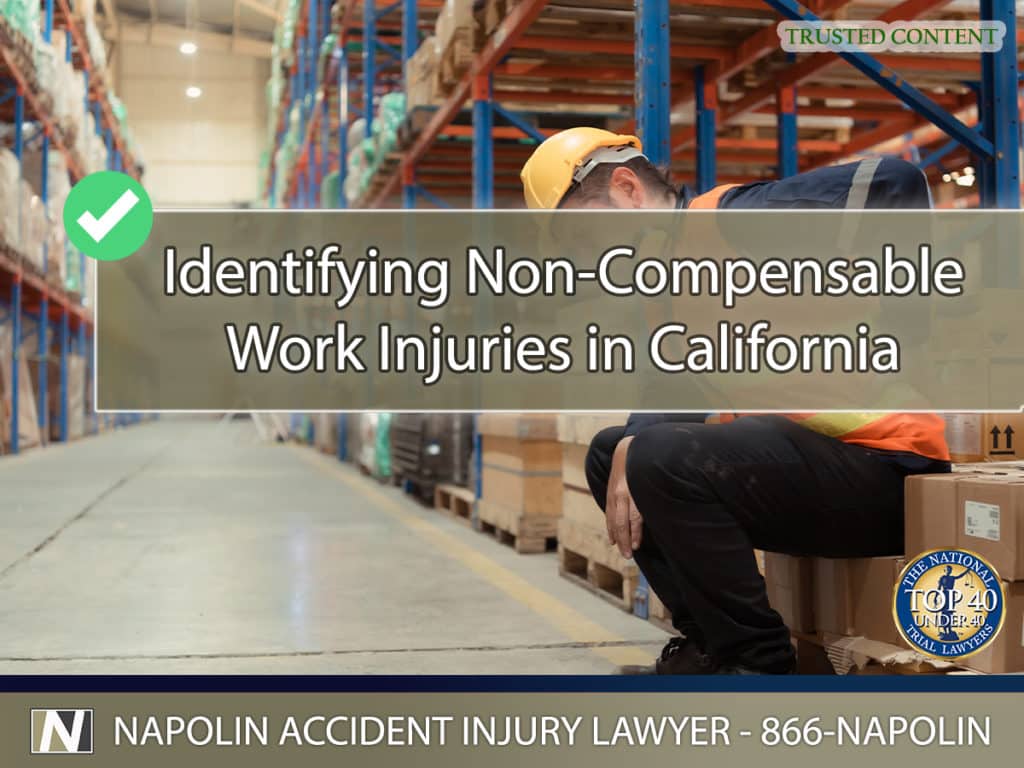Navigating the intricacies of workers’ compensation in California is crucial for employees, as it provides a safety net for those who sustain injuries or illnesses due to their work. However, not all injuries are covered under this system, and understanding the exclusions is vital.
Deciphering Workers’ Compensation in California
Deciphering Workers’ Compensation in California
Workers’ compensation is a form of insurance designed to offer financial and medical support to employees who have endured work-related injuries or illnesses. In California, it is mandatory for employers to have workers’ compensation insurance. To qualify for compensation, an injury must be directly related to work activities, and it can result in temporary or permanent disability, necessitating medical intervention or leading to lost wages. Moreover, the injury must be reported to the employer within a 30-day timeframe.
Navigating the Workers' Comp Claim Process in California
Navigating the Workers' Comp Claim Process in California
Prompt reporting of the injury to the employer is crucial for the injured employee, initiating the workers’ compensation claim process in California. The employee has a 30-day window to inform their employer about the injury. Following this, the employer is obliged to provide a claim form, which the employee must fill out meticulously and submit to the employer’s insurance company. This form should detail the time, date, and place of the injury, describe the nature of the injury, list any witnesses, and provide information about the medical treatment received.
Understanding Exclusions in Workers’ Compensation
While workers’ compensation aims to cover a broad spectrum of work-related injuries, there are specific exclusions that employees need to be aware of.
Excluding Certain Psychological Conditions
Psychological conditions such as stress, anxiety, and depression are generally not covered unless they are directly linked to a workplace injury. For example, depression that is a consequence of a work-related physical injury may be compensable, whereas depression due to personal issues would not be covered.
Injuries During Breaks
Injuries that occur during lunch breaks are usually considered “off-duty” and are not covered by workers’ compensation. However, there are exceptions, such as injuries that happen during rest breaks, on company premises, or during “working” lunches.
Horseplay and Employee Misconduct
Injuries resulting from horseplay or intentional employee misconduct are typically not covered by workers’ compensation. This includes injuries sustained during activities unrelated to work duties or injuries resulting from intoxication at work.
Legal Support for Workers’ Compensation Cases
The complexities of workers’ compensation laws in California can be daunting, and seeking assistance from an experienced attorney is invaluable. Napolin Accident Injury Lawyer, with a wealth of experience in workers’ compensation cases, is dedicated to defending the rights of injured workers in California.
Identifying Non-Compensable Work Injuries in Ontario, California
Identifying Non-Compensable Work Injuries in Ontario, California
Being well-informed about the exclusions in workers’ compensation is imperative for any employee in California. Knowledge is power, and seeking legal assistance when necessary can significantly impact the outcome of a workers’ compensation claim. If you or someone you know has sustained a work-related injury and requires legal support, do not hesitate to contact Napolin Accident Injury Lawyer at (909) 962-8415 for a free consultation. Our team of seasoned attorneys is here to guide you through the legal process and ensure your rights are upheld.

